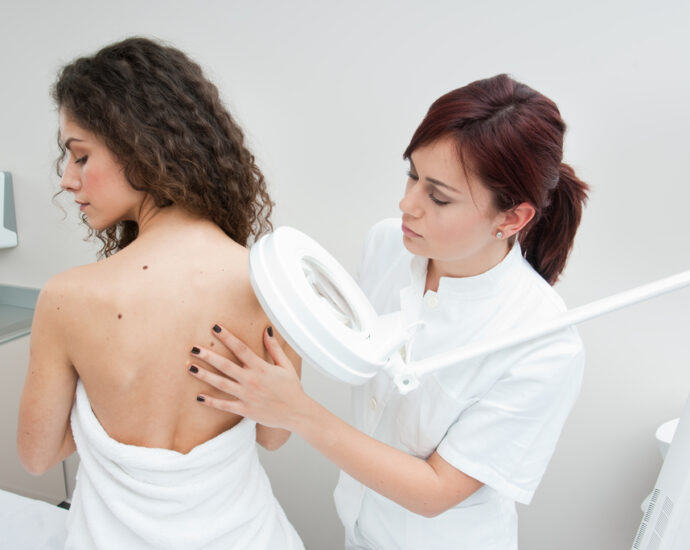Skin cancer is one of the most prevalent types of cancer worldwide, affecting millions of individuals each year. However, with early detection and proper prevention strategies, many cases of skin cancer can be effectively treated or even prevented altogether. This article aims to raise awareness about skin cancer by outlining its signs, discussing treatment options, and offering preventive measures to reduce the risk of developing this potentially life-threatening disease.
Skin cancer develops when abnormal skin cells grow uncontrollably, typically due to damage from ultraviolet (UV) radiation exposure. There are several types of skin cancer, with the most common being basal cell carcinoma, squamous cell carcinoma, and melanoma.
Page Contents
Signs and Symptoms
Recognizing the early signs of skin cancer is crucial for prompt diagnosis and treatment. Common signs include:
- Changes in Moles: Look for moles that change in size, shape, color, or texture.
- New Growth: Pay attention to the appearance of new growths, bumps, or sores that do not heal.
- Irregular Borders: Skin lesions with irregular, uneven borders may indicate skin cancer.
- Itching or Bleeding: Persistent itching, pain, or bleeding in a mole or lesion should be evaluated by a healthcare professional.
- Asymmetry: Suspicious moles or lesions that are asymmetric in shape may be indicative of melanoma.
Seeking Treatment
Early detection and treatment significantly improve the prognosis for individuals with skin cancer. Treatment options vary depending on the type, stage, and location of the cancer but may include:
- Surgical Removal: Surgical excision is a common treatment for removing cancerous lesions.
- Mohs Surgery: Mohs micrographic surgery is a precise surgical technique used to remove skin cancer layer by layer while preserving healthy tissue.
- Radiation Therapy: Radiation therapy may be recommended for certain types of skin cancer, particularly in cases where surgery is not feasible.
- Chemotherapy and Immunotherapy: These systemic treatments may be used for advanced or metastatic skin cancer to target cancer cells throughout the body.
Preventive Measures
While some risk factors for skin cancer, such as genetic predisposition, cannot be controlled, there are several preventive measures individuals can take to reduce their risk:
- Limit Sun Exposure: Minimize exposure to UV radiation, especially during peak sun hours (10 a.m. to 4 p.m.).
- Wear Sunscreen: Apply broad-spectrum sunscreen with SPF 30 or higher to exposed skin daily, even on cloudy days.
- Protective Clothing: Wear hats, sunglasses, and clothing that provide adequate sun protection, such as long sleeves and pants.
- Avoid Tanning Beds: Refrain from using tanning beds or booths, as they emit harmful UV radiation that can increase the risk of skin cancer.
- Regular Skin Checks: Perform monthly self-examinations of your skin and promptly report any changes or abnormalities to a dermatologist.
Conclusion
Skin cancer awareness is crucial for early detection, timely treatment, and prevention. By familiarizing yourself with the signs and symptoms of skin cancer, seeking prompt medical attention for suspicious lesions, and adopting sun-safe practices, you can reduce your risk of developing this potentially deadly disease. Remember that prevention is key, and taking proactive steps to protect your skin from UV radiation can help safeguard your long-term health and well-being. Stay vigilant, stay informed, and prioritize your skin health year-round.
READ MORE: Skin Care: When To See A Dermatologist
Sources:
https://www.cdc.gov/cancer/skin/basic_info/symptoms.htm#:~:text=Talk%20to%20your%20doctor%20if,a%20change%20in%20a%20mole.
https://www.mayoclinic.org/diseases-conditions/skin-cancer/diagnosis-treatment/drc-20377608
https://health.gov/myhealthfinder/health-conditions/cancer/take-steps-prevent-skin-cancer
https://healthsurgeon.com/health/protecting-your-skin-from-the-aging-effects-of-the-sun/
